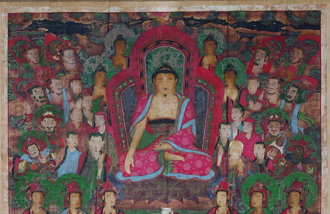[Opinion] Sell the Stories and Sensibilities
[Opinion] Sell the Stories and Sensibilities
Posted December. 17, 2001 09:19,
Only a decade ago, the first thing we looked for when buying clothes was probably the quality of the fabric. The older the buyer, he or she has more experience of verifying the company make and then check to see whether the fabric was wool or mixed.
Next, the buyer inspects the seams and how carefully the fabric has been sown. For many of today`s consumers, however, the quality of the fabric and craftsmanship of the clothes are not considerations. Surprisingly, the standards for buying clothes for someone like my mother, who is almost eighty, is brand first and then design. The brand here means more the image of the company and its reputation by hearsay, rather than the product itself, while design represents sensibility and culture.
These days, consumers buy not the items in the market, but the story and culture represented by the items. It is not the power of reason that moves the market, but the power of story and sensibility.
Is that really true? In order to find out, I asked a rather strange question to my students.
"In Kyongju, the Sungduk Royal Bell and the Emile Bell are famous. What would you want to see first?"
As I expected, the majority of the students said, "Emile Bell." Some also said, "We will see the Sungduk Bell later." or even "We don`t want to see that bell." Although some students even asked the nonsensical question, "Aren`t they the same bell?" the important thing is that they were not into the name of the item (Sungduk Royal Bell) but preferred to buy the story (Emile). This is a clear sign that the era of simply selling an item on the market is coming to an end.
The ad industry already tells us that the way to win in the market is to sell the story and sensibility. The ads for the A and B brands of large refrigerators and their different use of dreams and stories tell me how important sensibility has become in the cultural codes of the market today.
Brand B aired a commercial where a sheep is standing before the refrigerator and says, "It doesn’t make any sound," selling only is functional capabilities. Brand B has no explanation about the capability but airs a woman celebrity who says, "Men don`t understand. The homemakers dream refrigerator." selling a dream and story. In the beginning, the manufacturers of brand B had the upper hand, but now the company for brand A who sold a story has completely dominated sales. The power of dream, sensibility, and story has replaced technology and the item itself.
There are other indicators that show that the market has completely changed into a market of sensibility and story. Kwang Neung tree gardens whose product is the trees has seen a huge increase in visitors after airing a commercial with a professional forest ranger telling a story. Another example is Samsung`s Anycall in the Chinese market. After using the story of a prominent cultural celebrity and cooperating with the star, the sales multiplied. These results cannot be explained within the confines of rationalist market theory.
The story-market does not stop here, but extends to the tourist industry. The popular TV drama, The Hourglass, led to the Chung Dong Jin tour special while the film location for Dong Hwa draws foreign tourists who are keen about cultural sensibility. That is not all. The dairy, egg market also demonstrates the force of a dream and story market.
Many consumers today prefer `natural` or `organic` eggs to eggs produced in artificial egg farms under the harsh fluorescent lights. These egg farms are, by all moral counts, an unethical production system. Natural produced eggs contain a story of the olden days. The people do not hesitate spending money for the story inside the egg, the price of a dream.
Yet, the truly important thing to notice, as we take in the changes in the cultural code of the market, is the fact that these developments indicate larger social trends. It is the fact that production centered on information and technology is moving toward stories, sensibility, and culture. "Sell the stories and sensibilities." The one who reads the signs of a new society wins in the market.
Hong Sa-Jong (Sookmyung Women`s University, Professor of Culture and Tourism Studies)







